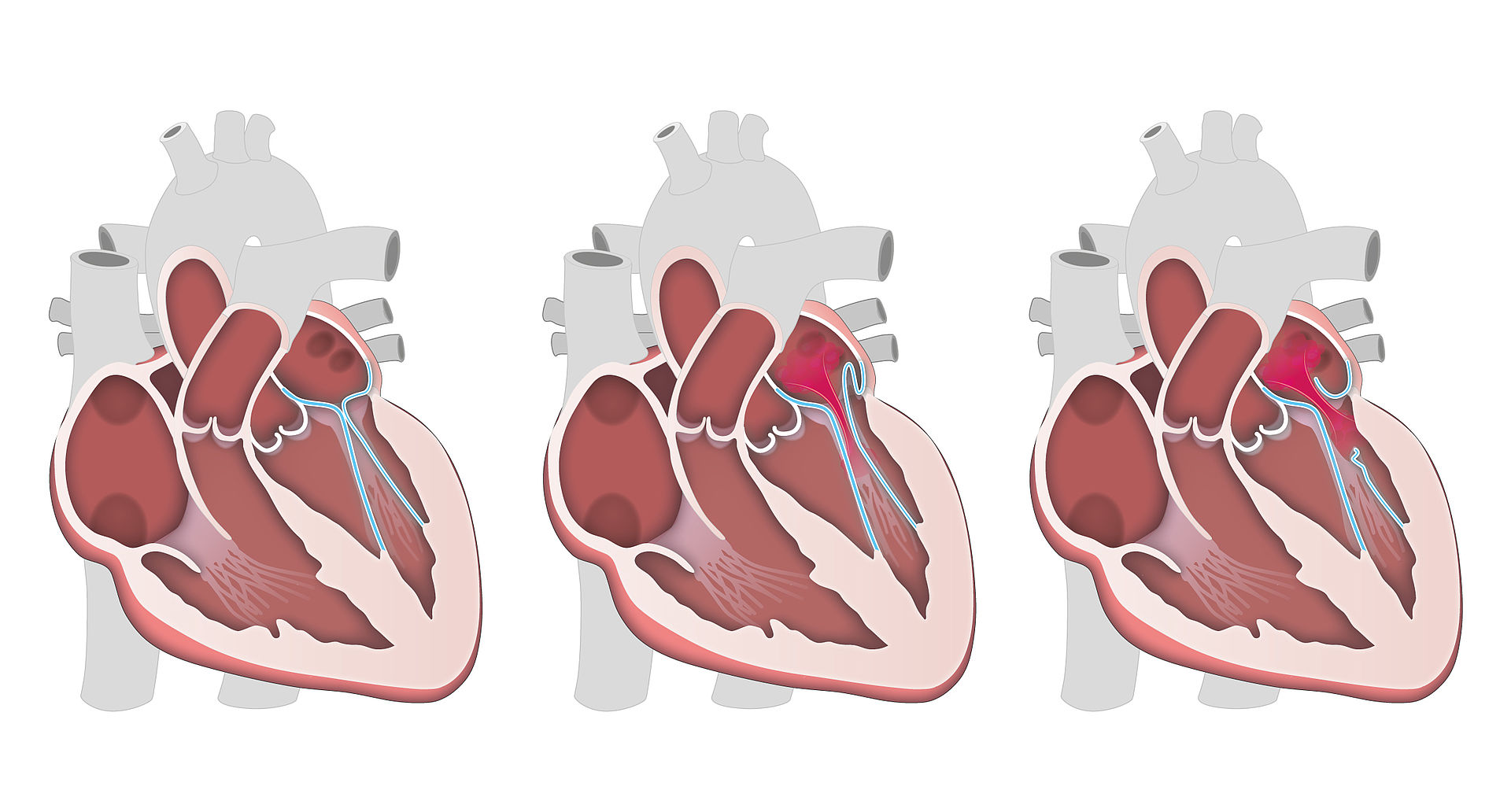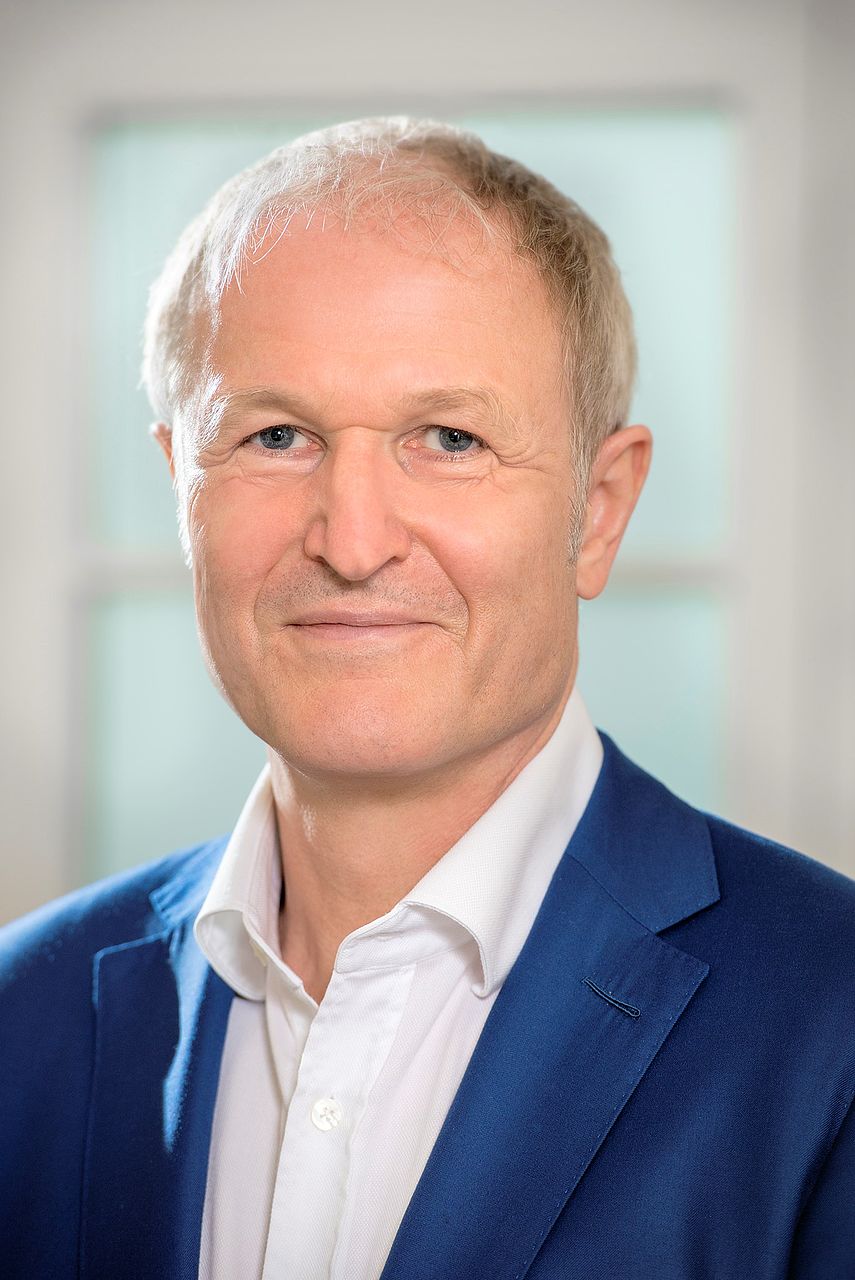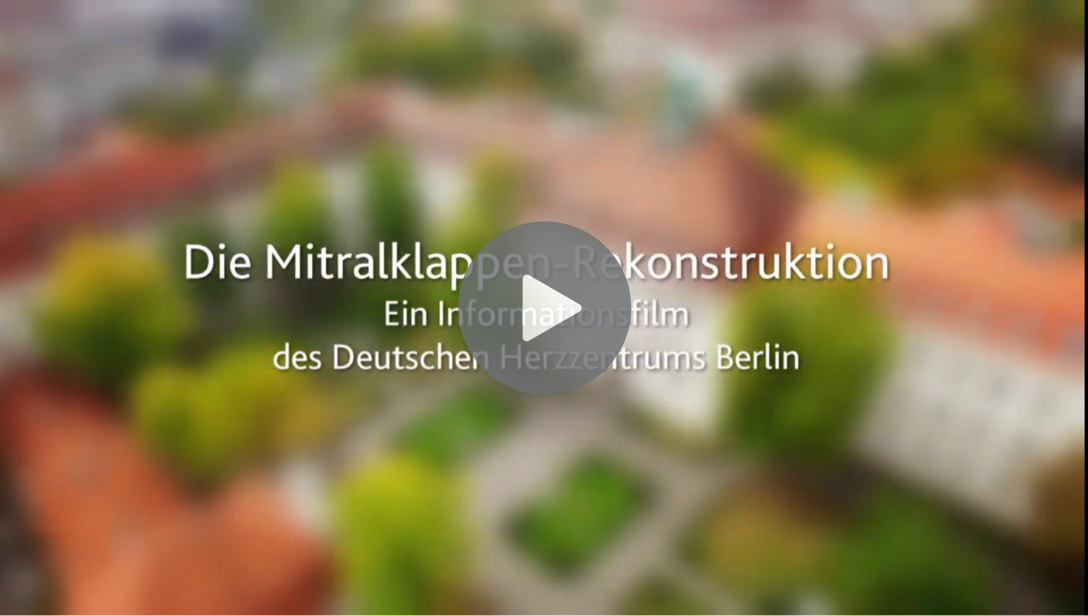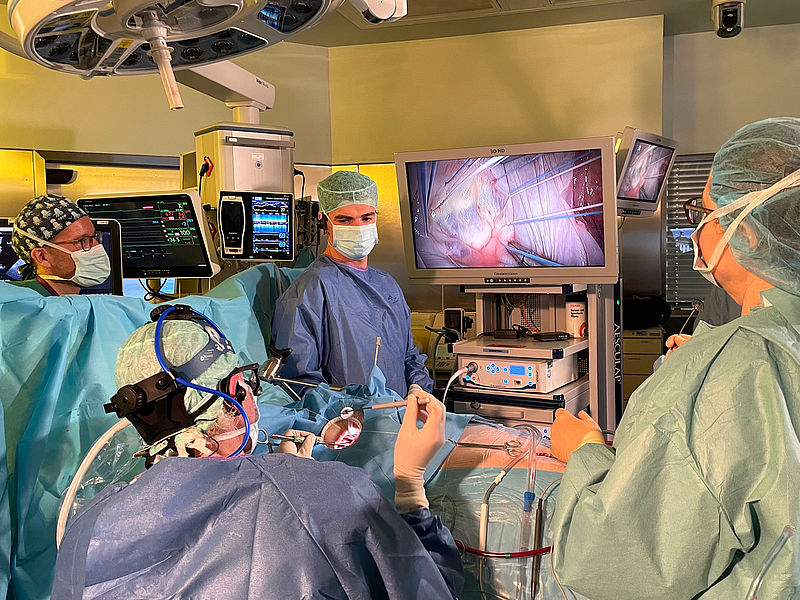Mitral valve insufficiency is the second most common acquired heart valve disease. Around one million people in Germany are affected. The mitral valve allows blood to pass from the left atrium into the left ventricle. During the contraction of the left ventricle the valve is closed to prevent backflow into the left atrium. If it leaks, blood flows back into the atrium and leads to pulmonary congestion. Therefore, a typical symptom of mitral valve insufficiency is shortness of breath. Fibroelastic deficiency can lead to chordal elongation or rupture leading to displacement of valvular segments into the left atrium, a condition termed mitral valve prolapse
Endoscopic repair of the mitral valve (“keyhole” surgery) has been the standard of care for many years. This procedure replaces the diseased chordae endoscopically and stabilizes the valve annulus with an implant (mitral ring). This technique is commonly applied to correct mitral valve prolapse.
In addition, a catheter-based procedure has also been established in the last ten years. In this procedure, a catheter system is inserted through a vein in the groin and advanced through the atrial septum in the left atrium. One or more clips are then applied to permanently connect opposite parts of the two mitral valve leaflets. The procedure is currently most often used in patients with heart failure and so called secondary mitral insufficiency, a condition when the valve is still healthy but no longer closes properly because the left ventricle is dysfunctional and enlarged.
Both procedures are possible - data is lacking
The clip procedure for mitral valve prolapse has so far been used to treat patients with a very high surgical risk. "In people with mitral valve prolapse and lower surgical risk, we can use both methods under certain conditions. However, comparative data on short and long-term benefits are still lacking," says Prof. Volkmar Falk of the German Heart Center at Charité. He leads the German arm of the U.S. PRIMARY study.
The study will enroll patients 60 and older with severe mitral regurgitation due to mitral valve prolapse. Patients are randomly divided into two groups. One-half will be treated surgically - usually endoscopically. The other group will be treated by catheter-based procedures.
Long-term data will be collected
The study team will check three years after treatment whether patients are alive and well or need to be readmitted due to recurrence of mitral valve insufficiency or heart failure. In addition, other outcomes of the repair will also be reviewed. "We have a unique opportunity here to determine which method is better in the long term. That's why we continue monitoring patients until ten years after treatment," Falk says.
In addition to the DHZC, 16 other German centers will participate in the study. A total of 1350 patients worldwide will be included in the study.
Study title: Percutaneous or Surgical Repair In Mitral Prolapse And Regurgitation for >60 Year-olds PRIMARY, clinicialtrials.gov
Principal investigator: Professor Volkmar Falk, Medical Director of the German Heart Institute at Charité, Director of the Department of Cardiothoracic and Vascular Surgery, volkmar.falk(at)dhzc-charite.de
Press contact: Christine Vollgraf, Press and Public Relations, German Center for Cardiovascular Research (DZHK), Tel: 030 3465 529 02, presse(at)dzhk.de
The press release was updated on January 31, 2024.




